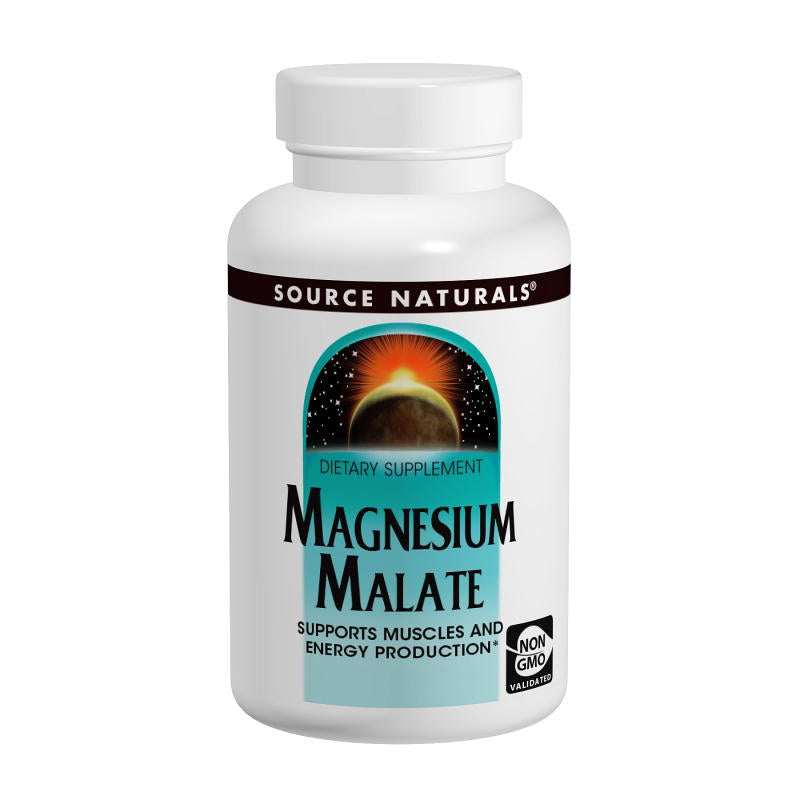Source Naturals, Magnesium Malate 1,250mg (180 Tablets)
Source Naturals, Magnesium Malate 1,250mg (180 Tablets)
SKU: SKU SN0262
Low stock
Couldn't load pickup availability
Suggested Use: As a dietary supplement, take 1 capsule 1 to 3 times daily with meals. Caution: If you are pregnant, may become pregnant, or breastfeeding, consult your health care professional before using this product. Keep out of reach of children. |
More Info + Quality Assurance
More Info + Quality Assurance
Source Naturals Magnesium Malate is a compound of magnesium and malic acid. It supports proper muscle function, cardiovascular health, and energy production. Malic acid is a natural fruit acid that is present in most cells in the body and is an intermediate in the Krebs cycle, where energy is captured during the metabolism of carbs and fats. Magnesium is an essential cofactor for over 300 enzymatic reactions in metabolism, ATP synthesis and energy production. Magnesium plays supports muscle relaxation, because of its function as a cofactor for enzymes and because of its ability to counterbalance calcium in the cell.*
About Source Naturals
Source Naturals® was created in 1982 by C.E.O. Ira Goldberg to support each individual's potential to enjoy optimal health. At that time, the kind of nutritional formulations he envisioned—for the maintenance of well-being and the enhancement of life–simply didn't exist. The idea of combining many nutrients, herbs and nutraceuticals in one formulation, though common today, was then a rarity.

You Have Questions. We Have Answers
Our knowledgeable team of experts is here to help.
Where is Bestvite located?
Bestvite's manufacturing facility is located in Sun Valley, California.
Are you a GMP facility?
Yes, we are an NSF-certified production facility. This certification ensures that our facility is audited annually for quality and safety, complying with federal regulations and industry good manufacturing practices (GMP).
Are your products tested?
Our products are 3rd party tested by ISO Certified testing laboratories for potency and purity.
What separates your products from your competition?
As both a manufacturing facility and a retailer, we offer factory direct pricing to our customers. Additionally, we control our own formulas, ensuring they are manufactured without stearates and other unnecessary fillers, setting our products apart from the competition.
Customer Reviews
- Choosing a selection results in a full page refresh.
- Opens in a new window.

